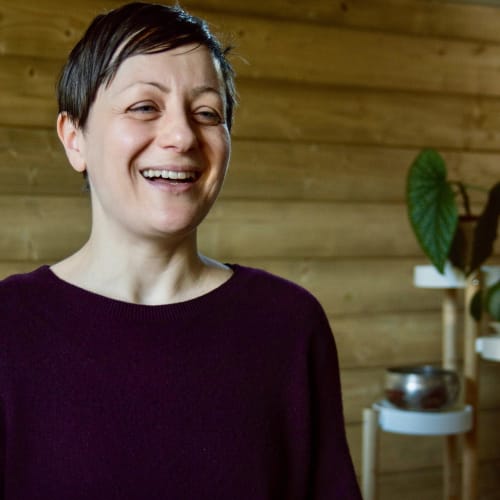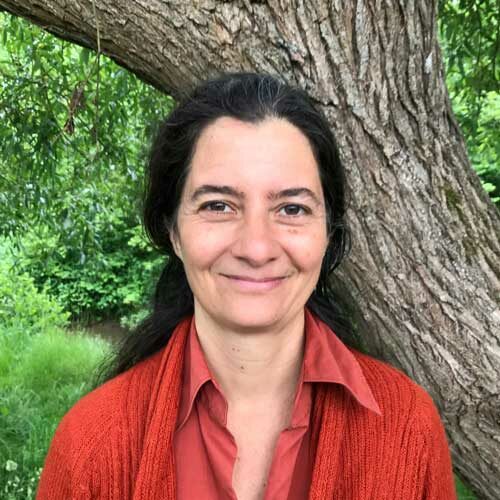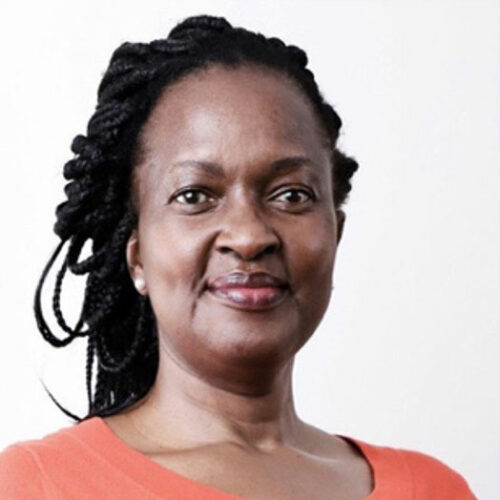Dharma teachings point at the way our experience is not-self. This also means that everyone else is not-other. In this class we explore the ways we isolate and defend ourselves, and reach for and reject others, looking towards a greater inclusion of and intimacy with others as the ground for both better relationships and true compassion.
With Martin Aylward recorded on April 30, 2017.
Found our teachings useful? Help us continue our work and support your teachers with a donation. Here’s how.
Discover more from the Dharma Library
-

Practicing for the love of it.
Recorded :
January 17, 2016 Before the session Martin wrote: “A Burmese teacher once told a friend of mine to always enjoy his practice. We love meditation in theory, and we want to grow and transform, and we certainly would like to be liberated from our suffering. And yet! We easily turn meditation into a chore, and feel discouraged by…
-

Daily Meditation Recordings, with Milla Gregor – Week of 26 May, 2025
We’re delighted to have Milla Gregor leading our Daily Meditation sessions this week. May these sessions support and deepen your practice.
This week’s theme is: Being Grounded: Five+ Ways
What is it, to feel grounded, for you? Contact with the earth, with fundamental interrelatedness, your body, values or lineage; with the histories of the land? What’s the opposite of being grounded? We’ll explore such ideas, grounding our reflections in embodied meditation practice.
Our Dharma Library thrives through collective generosity. Your donation helps sustain this offering for our entire community.
-

Pathways to Happiness
Recorded :
November 10, 2019 Being human includes feeling great and feeling pain; given the changing nature of experience what kind of happiness is possible for us? Can we cultivate freedom, happiness and contentment that are less reliant on things ‘going our way’? The attitudes of goodwill, care and friendliness are some of our greatest allies in practice, and also…
-

Practicing Belonging in a Divisive World
Recorded :
October 20, 2024 The precepts are often shared on the first night of retreat to kind of go into a social contract of how we’re going to care for one another on retreat, while holding the nobility of silence. And out in the world, without the protection of silence and this commitment, we often forget how deeply we…
-

Daily Meditation Recordings, with Leela Sarti – Week of April 18, 2022
This week’s theme is “Timeless Presence in Daily Life: Being Yourself, Being at Home”. This week we will be exploring the possibility of being grounded in the depth of timeless presence in the midst of daily life. How to live a full life from silence and emptiness? How can we feel at home in our own skin and in the very circumstances of our life? How can we awaken an awareness and a heart that embraces life, dukkha and beyond? The grace of presence reveals the possibility of settling in reality and living with ease.
-

Loving Awareness: Finding Freedom Within
Recorded :
February 26, 2023 “This thing person called “me”, the one who is sensing, thinking and perceiving right now….who or what is it? This is an age old question that the traditions of the East, especially Buddhism and Hinduism, have held as the heart of their traditions. The answer to that question, in some scriptures, is “awareness”, a part of us that is already wakeful, attentive, open, free and loving. In this Sunday teaching, we consider what it means to encounter awareness, and why it might be important, not only for our practice of meditation, but for the fulfilment of our life’s purpose.
-

I Am Not OK, You Are Not OK, That Is OK.
Recorded :
September 22, 2024 Reflection on suffering and the ending of suffering, with focus on second Noble Truth.
-

Being Real Together
Recorded :
June 14, 2020 Let’s pause. How are you doing in this time as all is showing up for reckoning at the same moment? Take some kind breaths, and have a moment of compassion for your self, others, and for it all. In today’s session let’s pause quietly, recalibrate, and check in.








Discussion